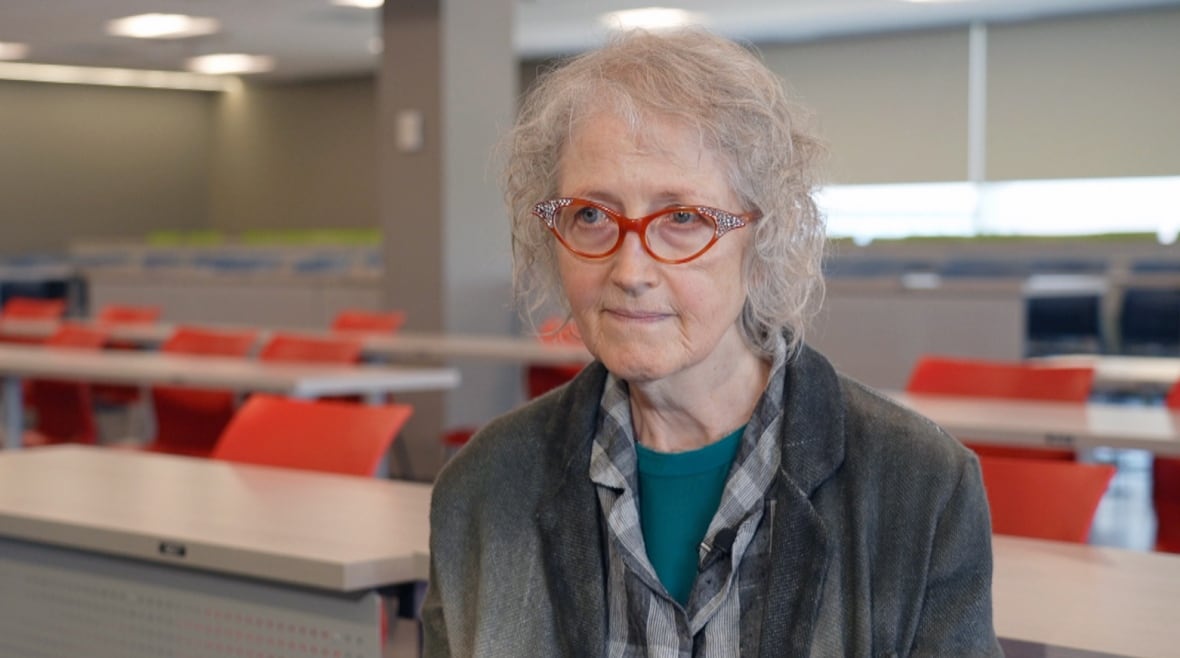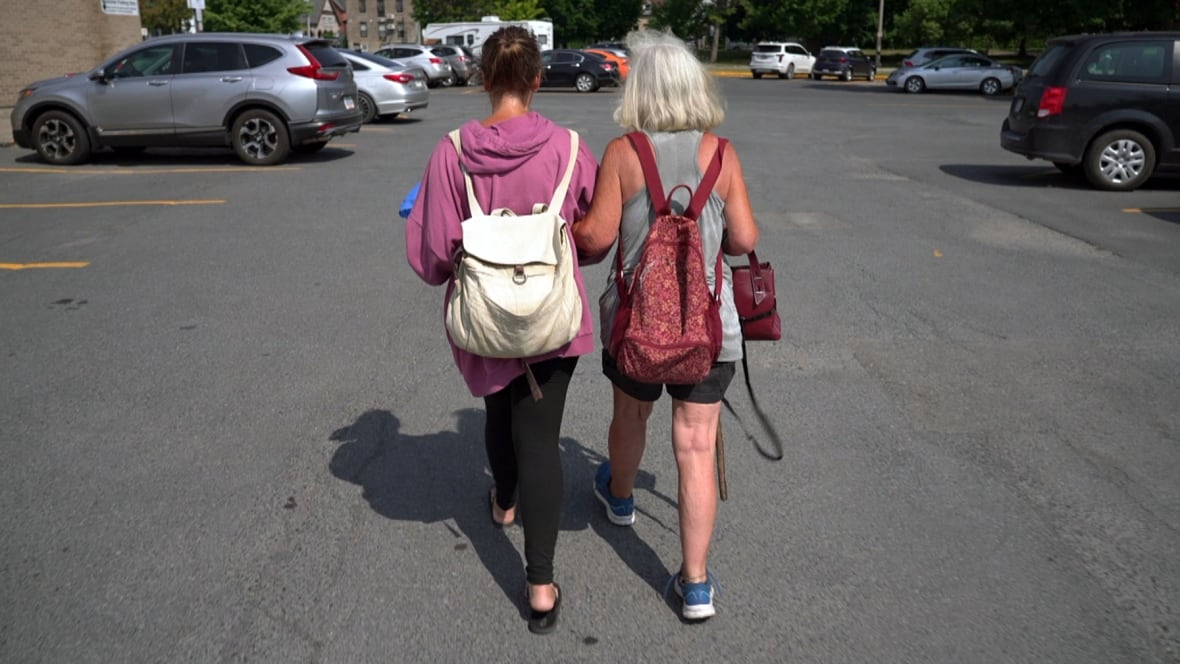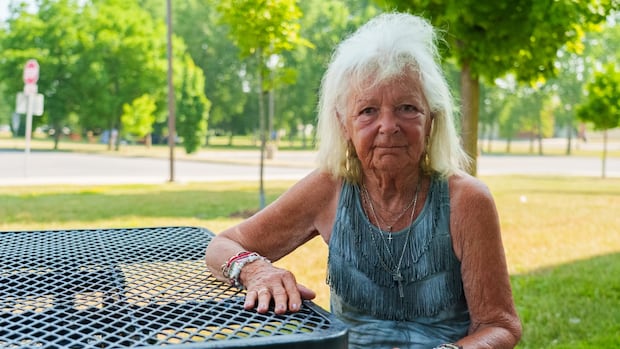Debate on forced mental health treatment continues as one woman's costs top $800K
One side argues patients given too much freedom to reject treatment, other says it yields better outcomes
In the fight to better help people with severe and persistent mental illness in Ontario — which can sometimes result in costly detention in jails and hospitals — two opposing camps are lobbying the Ministry of Health in very different directions.
On one side are those who think unwell patients are given too much freedom to reject treatment, putting them at risk of having their mental illnesses progress and become entrenched.
On the other side are the patient advocates who say there are already enough mechanisms to force treatment on people, that giving patients the help they ask for leads to better outcomes, and that insufficient community support is the real problem.
Meanwhile, health and justice systems as they exist today can spend much to achieve little. In one woman's ongoing case, a CBC News analysis estimates the costs since 2018 at $811,600 — and counting. She has bipolar I disorder, characterized by episodes of extreme emotional highs that last at least a week, followed by depression.
Yet despite Barbara Cleary's dozens of stints in hospital psychiatric wards, emergency housing, jail cells and living rough — as well as brief periods of stability and several months in an assisted living facility last year — today the 76-year-old is again unhoused, living in a tent encampment in Cornwall, Ont., continuing the cycle.
'An extremely high cost to the system'
"It is an extremely high cost to the system when people are unwell," said Dr. Karen Shin, chief of psychiatry at St. Michael's Hospital for Unity Health Toronto and chair of the Ontario Psychiatric Association.
"And you have to remember, she's one person. If you went in and reached out to any psychiatrists in the system that are working in a hospital, they can tell you numerous people they care for that have a similar story."
Cornwall police say they're dealing with 20 people like Cleary on a daily basis. The force picked five individuals from that group and found each averaged 53 occurrences requiring police response in 2024.
So, what to do?
Shin founded and co-leads the Ontario Psychiatric Association's mental health and law reform task force, which is calling on the province to expand forced treatment in certain circumstances. From her organization's perspective, some forced care protects the right to health for vulnerable people whose illnesses can cause delusional thinking.
"Choice is extremely important, but that choice has to be a capable choice, and a capable choice needs to include that there's an understanding of the symptoms of the illness and the consequences of saying, 'No, I don't want treatment,'" Shin said.
The task force wants the province to:
- Permit treatment during a patient's court appeal after the Consent and Capacity Board upholds a finding that they're incapable of making a decision.
- Remove the requirement that people have had to respond to treatment in the past from involuntary admission criteria under the Mental Health Act.
- Extend a first involuntary admission from 14 days to up to 30 days.

An organization called the Empowerment Council takes an opposing view. It says medication comes with risks that not every patient can tolerate, including the possibility of neurological damage, and that the trauma of having something forced into the body and mind can interrupt therapeutic relationships and scare people into avoiding it altogether.
"Why not exhaust providing the services that evidence shows help people, rather than spending a half a million dollars on your more carceral responses?" said Jennifer Chambers, the council's executive director.
"Instead, people are just in and out, in and out, and it makes no sense."
Cleary spent a few months in an assisted living facility last year after CBC first covered her story. She was removed last August by police after her illness deteriorated. In late October she was arrested and charged by Cornwall police for the 23rd time, according to court records — this time for breaching probation and trespassing at her former apartment building.
She spent a month and a half in jail getting back on medication before she pleaded guilty in December. She was sentenced to the time she had already served, bringing her total time in jail since 2018 to about 347 days.

Near her tent encampment on Wednesday, she recalled being removed from the assisted living facility and being strapped down on a bed in an anteroom of the hospital's emergency department for half a day.
"Then they admitted me for 12 days. The doctor released me onto the street again," she said.
Asked what she thinks she needs, Cleary said Cornwall has only one psychiatrist and requires more, and that she needs to live with someone who can help her with things like getting around and getting dressed. Many people in the unhoused community help her out on a daily basis, she said, though in the past she has been taken advantage of by some. She wants housing, but in light of her history since 2018 it's unclear how long it would last.
Chambers said Ontario used to be a leader in peer support, but that it's been first on the chopping block with funding constraints. And a transitional support system would help people adjust after being released from institutions like hospital and jail.
"Peers can be really creative and supportive with just where people are, rather than concentrating so much on wrenching them into a different space against their will," she said.

'So much has changed'
Shin agrees that more wrap-around social supports and services are necessary. But she also thinks Ontario's Mental Health Act needs beefing up.
"So much has changed with our knowledge of mental health care, the importance of access to treatment, the concerns around repeated episodes of illness and how that leads to more intractable illness, how it can lead to medications not working as well," she said.
"Most jurisdictions consider the potential risks and harms related to treatment refusal. They have legislative safeguards to ensure involuntary admission is with treatment, so that people get the treatment they need and are not indefinitely detained untreated."
The provincial ministries of health and the attorney general, which oversees the justice system, have not responded to repeated requests for comment.

Where our numbers come from
- According to a patient cost estimator run by the Canadian Institute for Health Information, which the Cornwall Community Hospital said was the best data to use, it has cost about $210,000 to hospitalize her on an inpatient basis for a total of 120 days since 2018. The estimate includes overhead costs as well as direct billing for treatment. It does not include her dozens of emergency room visits.
- According to figures provided by the Cornwall hospital about how much it costs to run its short-term crisis housing program ($100,000 per bed, per year), it cost about $14,600 to fund her bed for seven weeks this past winter.
- The Ministry of the Solicitor General said it cost about $349 per day in 2024 to house someone in an Ontario jail. Adjusted to inflation, it has cost an estimated $121,000 to keep Cleary in jail for a total of 347 days, according to a complete criminal history obtained by CBC. (Statistics Canada's daily average cost for Ontario is higher, resulting in an estimated total of about $127,000).
- The Ministry of the Attorney General does not keep track of or estimate costs on a case-by-case basis. Using estimated granular data from a small number of studies contained in a 2016 report on the costs of crime and criminal justice responses for Public Safety Canada, it has cost about $90,000 to shepherd her criminal cases through the Ontario Court of Justice, adjusted to inflation. The ministry said the 2016 report is the latest data available.
- According to statistics kept by the Department of Justice, which show Legal Aid has cost an average of about $1,200 per case from 2017 to 2023, it's cost an estimated $12,000 to pay for her defence.
- Policing costs, such as costs for time in court, are hard to nail down on an individual basis. Cornwall police say the lowest number of calls per year among its frequent fliers was 32 in 2024, and the highest was 88 calls. The force doesn't track costs per call or person, and said calls vary so widely in complexity and length that any estimate would be a wild guess. Using estimated granular data from a small number of studies contained in the 2016 report for Public Safety Canada, which pegs the average cost of a single police contact at about $1,400 in 2014 Canadian dollars, and using the lowest number of calls per person per year in Cornwall among its folks in Cleary's situation (32), it has cost about $364,000 to police her, adjusted to inflation.
Mental health resources
Do you need help, or does someone you know need help? Here are some mental health resources in the province, which differ depending on where you are:
211 Ontario maintains a database of services. You can search by topic (mental health/addictions) and your specific location. Live chat is available Monday to Friday from 7 a.m. to 9 p.m. ET, and a chatbot is available 24/7. You can also text 211, call 211 or email gethelp@211ontario.ca.
ConnexOntario is a directory of community mental health and addictions services in Ontario. You can connect with someone for information and referrals to services in your community 24/7 via 1-866-531-2600, texting "CONNEX" to 247247, live web chat or email.
The Suicide Crisis Hotline can be reached 24/7 by calling or texting 988.


